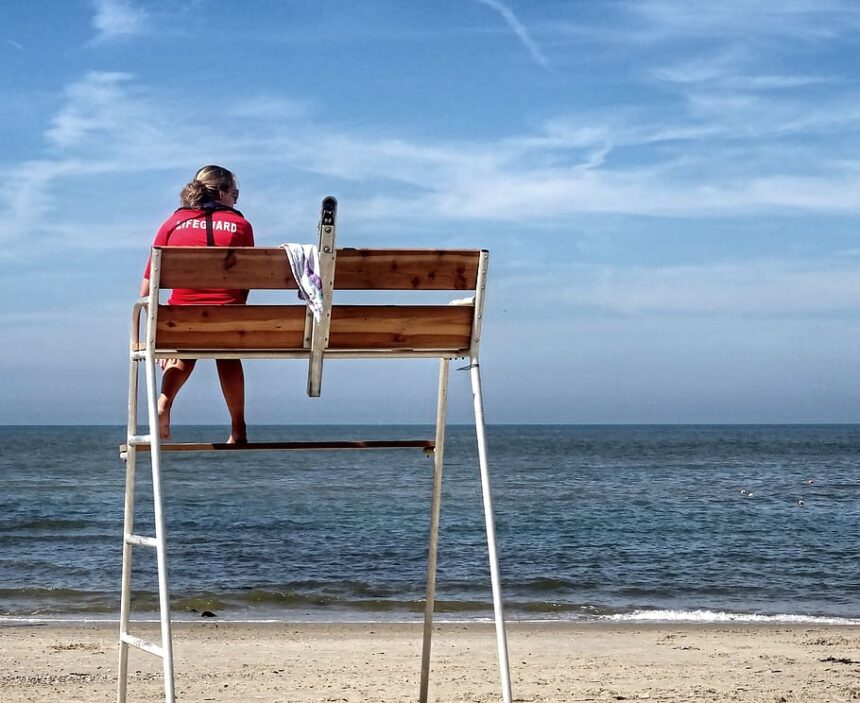When it comes to ensuring safety at pools, beaches, or any aquatic environment, lifeguards play a vital role. Lifeguard training prepares individuals to handle emergencies and protect others in these environments. Whether you’re interested in pursuing a career as a lifeguard or want to gain the skills necessary for safety management at your pool, lifeguard training is an essential investment in your future.
At American Lifeguard, we offer a comprehensive lifeguard certification program to ensure that you are fully prepared for this responsibility.
Why Lifeguard Training is Crucial
Lifeguard training goes beyond basic water skills. It involves learning the techniques and protocols for preventing accidents, rescuing individuals in distress, administering first aid, and providing CPR. This level of preparation is critical for anyone responsible for overseeing the safety of swimmers, especially in environments where there is a risk of drowning or injury.
American Lifeguard offers accredited programs designed to equip you with the necessary skills, knowledge, and confidence to handle real-life scenarios. Our certification programs are recognized and respected nationwide, ensuring that you receive high-quality, professional training.
What Does Lifeguard Training Include?
Lifeguard training typically includes several key components:
1. Water Rescue Skills
The core of any lifeguard training is learning how to safely and effectively rescue swimmers in distress. This includes learning various rescue techniques, such as reaching assists, swimming rescues, and using rescue equipment like lifebuoys or rescue tubes. Training also covers how to approach victims in different water conditions and how to safely bring them back to shore.
2. CPR and First Aid
One of the most important parts of lifeguard certification is learning how to perform CPR and basic first aid. At American Lifeguard, we teach comprehensive CPR techniques for adults, children, and infants. First aid training includes handling cuts, bruises, sprains, and other common injuries. This knowledge ensures that lifeguards can provide immediate assistance until professional medical help arrives.
3. Monitoring and Prevention
Effective lifeguards are always vigilant. Our lifeguard training emphasizes the importance of monitoring swimmers, looking for signs of distress, and preventing accidents before they happen. Lifeguards are trained to spot unsafe behaviors and intervene when necessary to maintain a safe environment for everyone in the water.
4. Emergency Response
In the event of an emergency, quick thinking and calm actions are crucial. Our lifeguard training courses teach how to respond to various emergencies, from cardiac arrest to spinal injuries, with precision and speed. Lifeguards also learn how to work with other emergency personnel, such as paramedics and police, to ensure the safety and well-being of the individual involved.
Lifeguard Certification Process at American Lifeguard
At American Lifeguard, our training programs are designed to provide a thorough understanding of all the skills necessary to become a certified lifeguard. The certification process typically involves the following steps:
- Sign-Up and Registration: Start by enrolling in our lifeguard training course, which includes both online and in-person components.
- Completion of Training Modules: Our training includes classroom learning, hands-on practice in a pool environment, and a series of exercises designed to test your knowledge and skills.
- Certification Exams: To become a certified lifeguard, you must successfully complete both written exams and practical skills tests.
- Get Certified: Once you pass the exams, you will receive your lifeguard certification, which is valid for a specified period, usually two years.
- Renewal and Recertification: Lifeguard certification needs to be renewed periodically, and American Lifeguard offers recertification courses to ensure that you stay up-to-date on the latest techniques and best practices.
How to Choose the Right Lifeguard Training Course
When selecting a lifeguard training course, it’s important to ensure that the program is accredited and recognized by the appropriate authorities. Look for programs that are endorsed by reputable organizations like the Red Cross or other recognized bodies.
At American Lifeguard, our programs meet or exceed the standards set by these governing organizations. We provide the highest quality training, taught by experienced instructors who are committed to your success.
Benefits of Becoming a Certified Lifeguard
Lifeguard certification can open doors to a wide range of job opportunities. Here are just a few benefits:
- Career Opportunities: Many pools, beaches, water parks, and recreational facilities require certified lifeguards to ensure safety. Certified lifeguards are in demand at summer camps, resorts, and community centers.
- Develop Life-Saving Skills: Lifeguard training teaches you valuable skills that can help save lives in emergency situations.
- Confidence and Leadership: Being a lifeguard requires responsibility and leadership. The training helps build confidence in your ability to manage stressful situations and respond effectively.
- Flexible Hours: Lifeguarding jobs often offer flexible hours, making them an ideal choice for students or those looking for part-time work.
Summary
Lifeguard training is an essential course that provides individuals with the knowledge, skills, and confidence to safeguard others in aquatic environments. Whether you’re interested in pursuing a career as a lifeguard or simply want to become more proficient in water safety, American Lifeguard offers a comprehensive and accredited certification program. Join our training courses today and gain the qualifications you need to make a difference in your community.
Would you like to read about; Dive into Safety: The Ultimate Guide to Lifeguard Classes by the ALA








